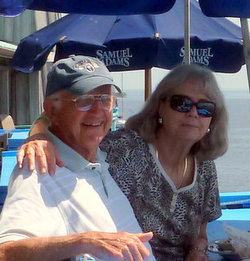Learning How To Live Longer
Some age old questions are..."How long will I live", and "How to live longer"? There are many reasons that we have a long life. We can have good genes, a good attitude, minimum stress, friends and family, eating and drinking sanely, avoiding toxic relations, live in a clean environment and on and on.
Let's first take a look and find out what our life expectancy is projected to be. Depending on where we live, we may not have to be concerned about changing our lifestyle. Dr. James Bennett, a researcher at Imperial College London predicts the countries that will have the best life expectancy in 2030. Here are his results:
"BACKGROUND: Projections of future mortality and life expectancy are needed to plan for health and social services and pensions. Our aim was to forecast national age specific mortality and life expectancy using an approach that takes into account the uncertainty related to the choice of forecasting model.
 There is more than a 50% probability that by 2030, national female life expectancy will break the 90 year barrier,
There is more than a 50% probability that by 2030, national female life expectancy will break the 90 year barrier,METHODS: We developed an ensemble of 21 forecasting models, all of which probabilistically contributed towards the final projections. We applied this approach to forecast age-specific mortality to 2030 in 35 industrialized countries with high-quality vital statistics data. We used age-specific death rates to calculate life expectancy at birth and at age 65 years, and probability of dying before 70 years of age, with life-table models.
RESULTS: Life Expectancy is projected to increase in all 35 countries with a probability of at least 65% for women and 85% for men. There is a 90% probability that life expectancy at birth among South Korean women in 2030 will be higher than 86.7 years, the same as the highest life expectancy in 2012, and 57% probability that it will be higher than 90 years.
Female life expectancy in South Korea is followed by those in France, Spain and Japan. For men, there is greater than 95% probability that life expectancy in South Korea, Australia and Switzerland will surpass 80 years in 2030, and 27% that it will surpass 85 years.
The USA, Japan, Sweden, Greece, Macedonia and Serbia have some of the lowest projected life expectancy gains for both men and women. The female life expectancy advantage over men is likely to shrink by 2030 in every country except Mexico, where female life expectancy is predicted to increase more than male life expectancy, and in Chile, France, Greece, and Romania where the two sexes will see similar gains. More than half of the projected gains in life expectancy at birth in women will be due to enhanced longevity above 65 year of age.
CONCLUSIONS: There is more than a 50% probability that by 2030, national female life expectancy will break the 90 year barrier, a level that was deemed unattainable by some at the turn of the 21st Century. Our projections demonstrate the continued success of extending longevity, and the need for careful planning for health and social services and pensions."
In another recent study that we think has tremendous impact on how to live longer, regardless of where we live, is titled "The Blue Zones."
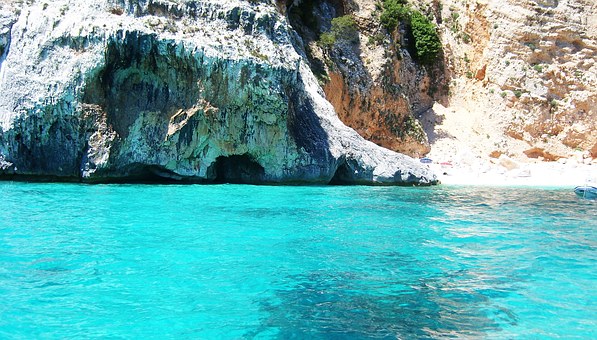 Take time off from your everyday routine and learn to deal with stress.
Take time off from your everyday routine and learn to deal with stress.In 2004 the National Geographic along with other individuals and organizations funded a worldwide study to find where the most centenarians lived (individuals living to the age of 100). Dan Buettner was the lead investigator that managed the study. His book titled "The Blue Zones" identified 5 areas in the world that people live the longest. The areas are as follows:
- Barbagia region of Sardinia - Mountainous highlands of inner Sardinia with the world's highest concentration of male centenarians.
- Ikaria, Greece - Agean Island with one of the world's lowest rates of middle age mortality and the lowest rates of dementia.
- Nicoya Peninsula, Costa Rica - World's lowest rates of middle age mortality, second highest concentration of male centenarians.
- Seventh Day Adventists - Highest concentration is around Loma Linda, California. They live 10 years longer than their North American counterparts.
- Okinawa, Japan - Females over 70 are the longest-lived population in the world.
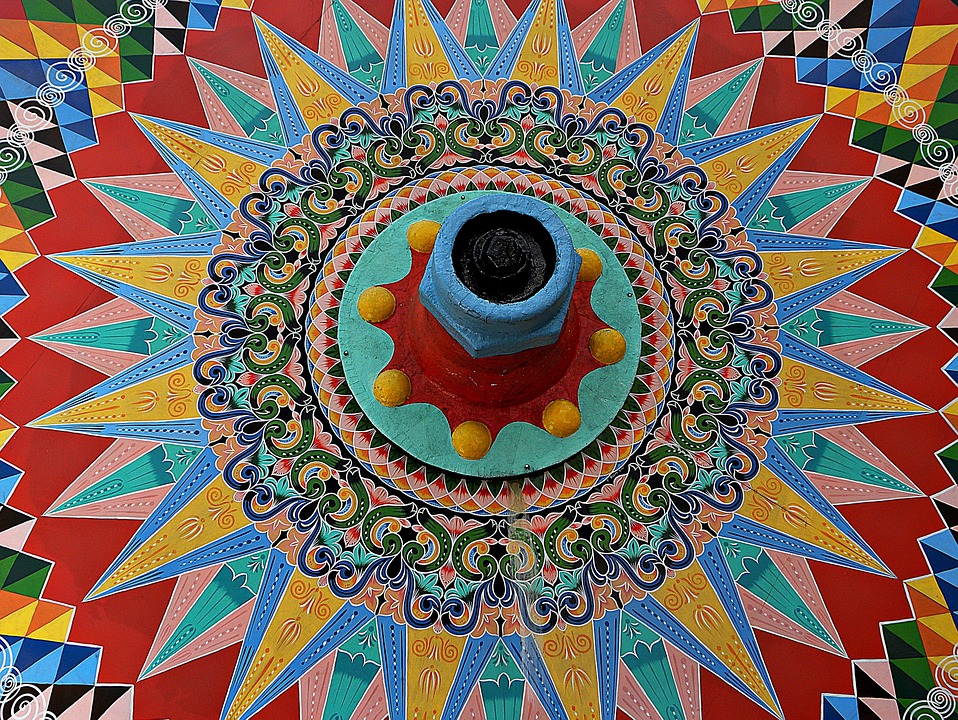 Maybe it is time to refine the quality of your lifestyle.
Maybe it is time to refine the quality of your lifestyle.The lessons to be learned from this study on how to live longer will serve you well in the fast moving stressful world that most of us live in. Not that living longer is the most important part of our lives, but refining the quality of our time on spaceship earth is the most important challenge.
You Can Learn How to Live Longer
Here are nine hallmarks of the Blue Zones, called "The Power Nine", as observed by the Blue Zone team:
1. Move Naturally
The world's longest-lived people don't pump iron, run marathons or join gyms. Instead they live in environments that constantly nudge them into moving without thinking about it. They grow gardens and don't have mechanical conveniences for house and yard work.
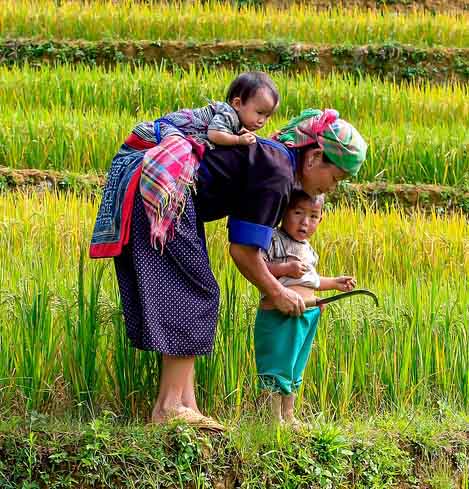 Learning how to live longer may mean reducing the stress in your life.
Learning how to live longer may mean reducing the stress in your life.2. Purpose
The Okinawans call it "ikigai" and the Nocoyans call it "plan de vida"; for both it translates to "why I wake up in the morning". Knowing your sense of purpose, like an Okinawa centenarian, is worth up to seven years of extra life expectancy.
3. Down Shift
Reducing stress is part of learning how to live longer. Even people in the Blue Zones experience stress. Stress leads to chronic inflammation which is associated with every major age-related disease.
What the world's longest-lived people have that we don't are ways to manage stress. The Okinawans take a few moments each day to remember their ancestors, Adventists pray, Ikarians take a nap and Sardinians do happy hour.
4. 80% Rule
"Hara hachi bu", the Okinawan 2500-year old Confucian mantra said before meals, reminds them to stop eating when their stomachs are 80 percent full. The 20% gap between not being hungry and feeling full could be the difference between losing weight and gaining it. People in the Blue Zones eat their smallest meal in the late afternoon or early evening and then they don't eat any more the rest of the day.
5. Plant Slant
Beans, including fava, black, soy and lentils, are the cornerstone of most centenarian diets. Meat, mostly pork, is eaten on the average only five times per month. Serving sizes are 3 - 4 oz., about the size of a deck of cards.
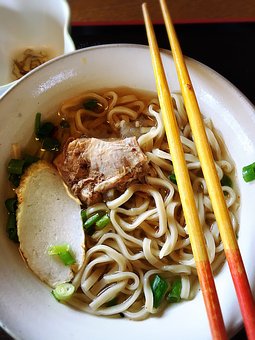 Animal products are eaten only about once a week, and the serving is about the size of a deck of cards.
Animal products are eaten only about once a week, and the serving is about the size of a deck of cards.6. Wine at 5
People in all Blue Zones (except Adventists) drink alcohol moderately and regularly. Those who enjoy moderate drinking out-live non-drinkers.
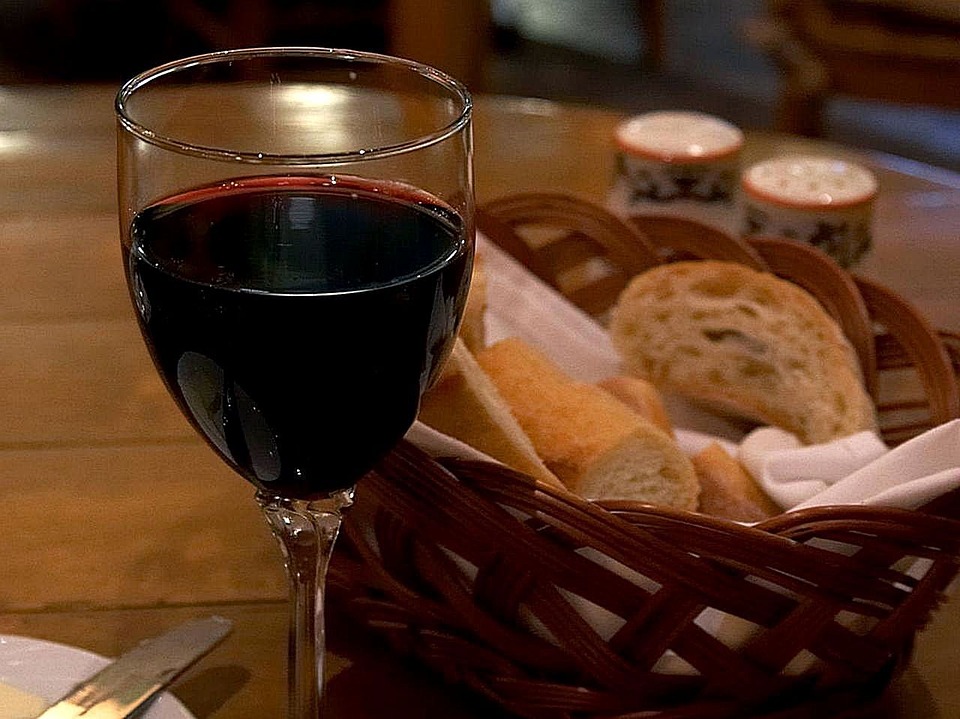 Happy hour in moderation with family and friends can relieve stress and may add years to your life.
Happy hour in moderation with family and friends can relieve stress and may add years to your life.The trick is to drink 1 - 2 glasses per day (preferably Sardinian Cannonau wine), with friends and/or with food. And no, you can't save up all week and have 7 - 14 drinks over the weekend. The key here in learning how to live longer is moderation.
7. Belong
All but five of the 263 centenarians we interviewed belonged to some faith-based community. Denomination doesn't seem to matter. Research shows that attending faith-based services four times per month will add 4 - 14 years of life expectancy.
8. Loved Ones First
Learning how to live longer includes putting families first. For centenarians in the Blue Zones this means keeping aging parents and grandparents nearby or in the home. It lowers disease and mortality rates of children in the home too.
 Living longer is putting families first!
Living longer is putting families first!Centenarians commit to a life partner (which can add up to 3 years of life expectancy) and invest in their children with time and love. In return, they will be more likely to care for you when the time comes.
9. Right Tribe
Last but not least, the world's longest live people were born into or chose social circles that supported healthy behaviors. Okinawans created "moais" which are groups of five friends that committed to each other for life. Research from the Framingham Studies shows that smoking, obesity, happiness, and even loneliness are contagious. So the social networks of long-live people have favorably shaped their health behaviors.
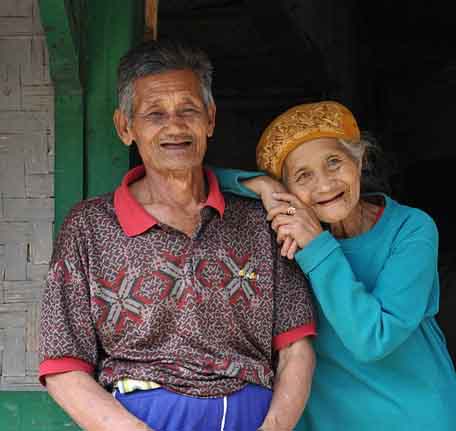 Your years life expectancy could increase by 10-12 years by adopting a Blue Zones lifestyle.
Your years life expectancy could increase by 10-12 years by adopting a Blue Zones lifestyle.To make it to the age of 100, you have to have won the genetic lottery. But for most of us, we have the capacity to learn how to live longer and make it well into our 90's, and largely without chronic disease. As the Adventists demonstrate, the average person's life expectancy could increase by 10-12 years by adopting a Blue Zones lifestyle.
To learn more about how to live longer, check out this book...The Blue Zones - 9 Lessons on How to Live Longer From the People Who've Lived the Longest.
More healthy living tips...
- Sunshine Vitamin - Vitamin D is known as the sunshine vitamin and is essential for good health.
- Natural Toothpaste - Use a natural toothpaste to avoid chemicals that can pass directly into the blood stream where they can accumulate into toxic levels.
- Shower Head Water Filter - can help you avoid exposure to chlorine and other toxins.
- Relieve Stress - Learn the natural remedies on how to relieve stress.
- Protocel - is a unique product that does not rely on vitamins, herbs, minerals, or pharmaceuticals to destroy cancer.
- Placebo Effect - It is an effect defined as positive after receiving medical interaction even when the treatment is inactive or fake.
- RIGVIR - is a live "good" human virus that destroys the cancer cells after selectively infecting the tumor.

